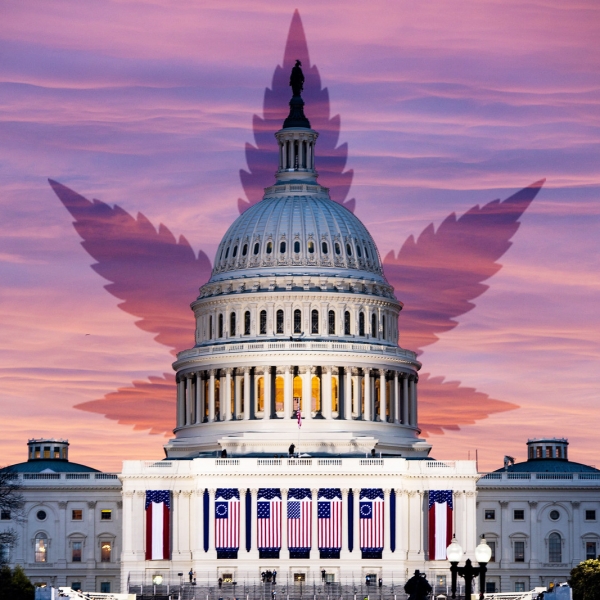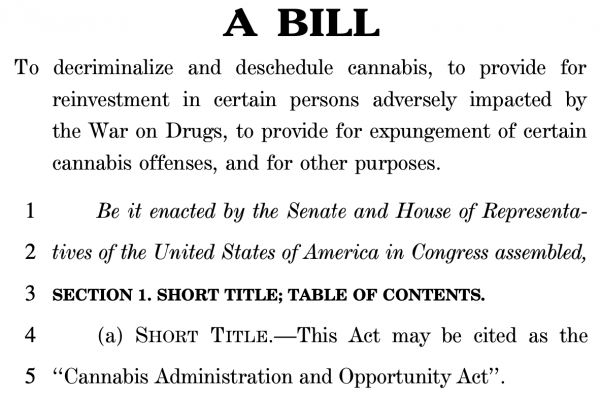Unpacking the Cannabis Administration & Opportunity Act
 Marijuana Moment takes a deep dive into the first draft of the Senate’s Cannabis Administration and Opportunity Act that would federally legalize marijuana in the US:
Marijuana Moment takes a deep dive into the first draft of the Senate’s Cannabis Administration and Opportunity Act that would federally legalize marijuana in the US:
The main features of the legislation largely align with what advocates and stakeholders expected. It would federally deschedule cannabis, expunge prior convictions, allow people to petition for resentencing, maintain the authority of states to set their own marijuana policies and remove collateral consequences like immigration-related penalties for people who’ve been criminalized over the plant.
The bill would also impose a federal tax on marijuana products and put some of that revenue toward grant programs meant to support people from communities most impacted by prohibition who want to participate in the industry.
Further, the legislation would transfer regulatory authority over cannabis from the Drug Enforcement Administration (DEA) to the Food and Drug Administration (FDA), the Bureau of Alcohol, Tobacco, Firearms and Explosives (ATF) and the Alcohol and Tobacco Tax and Trade Bureau (TTB).
There’s a lot of ground to cover on the proposal. And while the senators are confident that it addresses key concerns from stakeholders, advocates, public health officials and law enforcement alike, they recognize that this is not the final form the bill will take. To that end, a public comment period is open until September 1.
“The War on Drugs has been a war on people—particularly people of color. The Cannabis Administration and Opportunity Act aims to end the decades of harm inflicted on communities of color by removing cannabis from the federal list of controlled substances and empowering states to implement their own cannabis laws,” the senators said in a summary of the bill that was shared with Marijuana Moment. “Descheduling cannabis is a critical step towards achieving justice for those targeted and hard hit by the War on Drugs. But that alone is not enough.”
The bill is multifaceted and deals with a large number of complex issues that have arisen under the umbrella of federal prohibition. Perhaps the most immediately consequential provision would be a requirement that the attorney general to remove marijuana from the Controlled Substances Act within 60 days of the bill’s enactment.
But it’s important to keep in mind that this legislation—like other federal legalization bills moving through Congress—would not make it so marijuana is legal in every state. The proposal specifically preserves the right of states to maintain prohibition if they way. It stipulates, for example, that shipping marijuana into a state where the plant is prohibited would still be federally illegal.
However, the measure would make it clear that states can’t stop businesses from transporting cannabis products across their borders to other states where the plant is permitted.
Much more at Marijuana Moment including new grant programs to support businesses & social equity. You can read the detailed summary of the bill right here & as soon as we have a link for public comment, we’ll share that!
photo: Sunrise at the United States Capitol Building by Anthony Quintano (art by Michigan Cannabis Trail)












